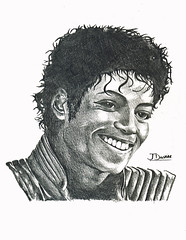The New York Times ran a story at the end of last week about the media flurry surrounding celebrity deaths over the last several months. The article takes a closer look at the context and meaning of all the alarm.
The trend…
ONE after the other, they were dying: Michael Jackson, Farrah Fawcett and Ed McMahon, all in the same week earlier this summer. Next were Walter Cronkite, John Hughes and, in late August, at a pitch point of public grief, Senator Edward M. Kennedy. Then on Monday, Patrick Swayze died after a widely publicized struggle with pancreatic cancer, only to be followed by Mary Travers of Peter, Paul and Mary Wednesday night.
It has been, by all appearances, the endless funereal season, with a news media swarm on the departed and a parade of nostalgic tributes, as bloggers and Twitterers went on “celebrity death watch.” Even before Senator Kennedy succumbed to brain cancer Aug. 25, columnists wrote pleading laments like one in The Washington Post that said, “God, please stop taking away our celebrities.”
But the trend may be exaggerated.
But in fact, no more celebrities had died than in past summers, according to Lou Ferrara, a managing editor in charge of entertainment and lifestyle coverage for The Associated Press.
The perception of numerous celebrity deaths was not supported by the number of obituaries the news agency wrote, he said, because it was not a matter of how many died, but who.
What does all of this mean? The sociologist explains…
This summer could come to be known as the summer when baby boomers began to turn to the obituary pages first, to face not merely their own mortality or ponder their legacies, but to witness the passing of legends who defined them as a tribe, bequeathing through music, culture, news and politics a kind of generational badge that has begun to fray.
“This is a historical development in cultural history,” said Todd Gitlin, 66, the sociologist and author of “The Sixties,” who teaches at the Columbia University School of Journalism. “It’s the ebbing of figures who have a wide enough span of appreciation and admiration so they appeal to significant numbers of people, like incarnations of virtue. So people take a new measure of themselves when they ask, ‘Will there ever be anybody else like X’ ”?


Comments